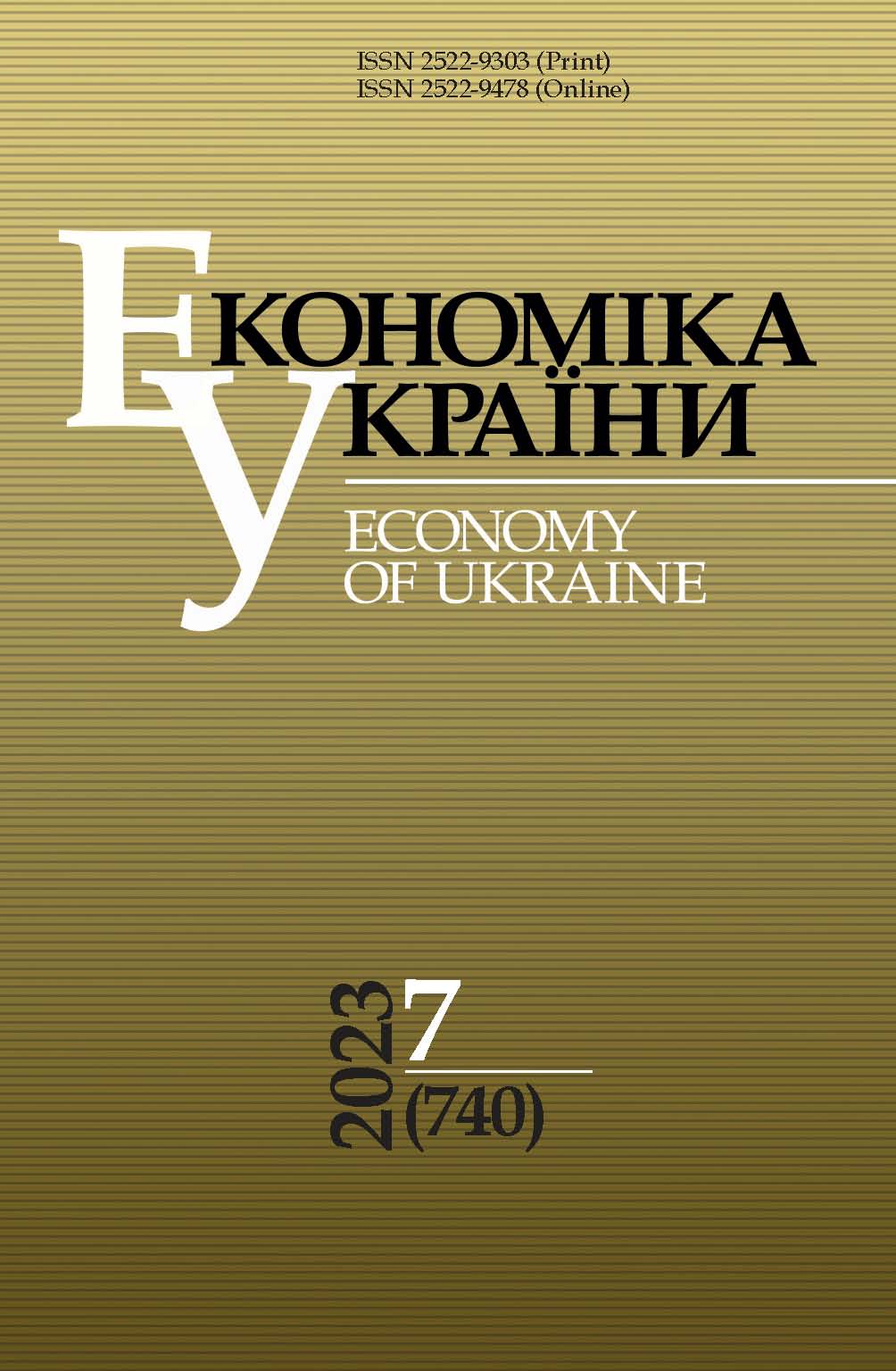GLOBAL POSITIONING OF CHINESE ECONOMY: SECURITY ASPECT
DOI:
https://doi.org/10.15407/economyukr.2023.07.005Keywords:
development of China’s economy; global positioning; global competition; global security; economic development trends; structural economic changesAbstract
The studied changes in the global positioning of Chinese economy resulted from significant and long-term successes of the country in ensuring high dynamics of economic development, achieving radical structural changes and a high level of international competitiveness, which enables China to directly challenge the positions of leading world economic centers, represented by the USA and the EU, and claim the role of an alternative center shaping the global order. This leads to significant aggravation of competitive struggle and contradictions between China and the West, paves the way for overall global destabilization.
The intensifying global competition between China and the leading Western centers leads to the spread of restrictive trade and investment measures in a number of important economic areas, increases the level of commercial and investment risks, causes the disruption of global value chains and strengthens the desire of multinational companies to relocate their production outside China. In turn, it stimulates the reorientation of China's economic development policy to qualitative parameters and the transition from excessive export orientation to a more balanced economic development. At the same time, it encourages the country to promote an alternative model of globalization based on the "shared future for mankind" concept coupled with the use of a powerful mechanism of investment and financial penetration into various regions of the world, forming its economic and political influence zone. China's future global prospects will largely depend on its ability to become a real world technological leader amid the rapid spread of the latest information, bio- and nanotechnologies.
A significant aggravation of China's conflicts with the West will create an unfavorable environment for the development of the world economy, preventing solution of the key global problems of humanity, and will generate a number of global security risks. In addition, it will require an intensification of efforts to find new institutional formats to ensure a balance of interests among key actors in the world economy.
References
Zhao Xiaochun. In Pursuit of a Community of Shared Future. China's Global Activism in Perspective. China Quarterly of International Strategic Studies, 2018, Vol. 4, No. 1, pp. 23-37.
doi.org/10.1142/S2377740018500082
Pablo D. Fajgelbaum, Amit K. Khandelwal. The Economic Impacts of the US -- China Trade War. Annual Review of Economics, 2022, Vol. 14, pp. 205-228. URL: www.annualreviews.org/doi/pdf/10.1146/annurev-economics-051420-110410
doi.org/10.1146/annurev-economics-051420-110410
Arslanalp S., Eichengreen B.J., Simpson-Bell C. The Stealth Erosion of Dollar Dominance: Active Diversifiers and the Rise of Nontraditional Reserve Currencies. IMF Working Paper, 2022, Iss. 58.
doi.org/10.5089/9798400204746.001
Horn S., Parks B.C., Reinhart C.M., Trebesch Ch. China as an International Lender of Last Resort. AidData. Working Paper 124, March 2023. URL: docs.aiddata.org/ad4/pdfs/WPS124_China_as_an_International_Lender_of_Last_Resort.pdf
doi.org/10.3386/w31105
García-Herrero A., Tan J. Deglobalisation in the context of United States-China decoupling. Policy Contribution, 2020/21. Bruegel, 2020.
Downloads
Published
How to Cite
Issue
Section
License
Copyright (c) 2023 Economy of Ukraine

This work is licensed under a Creative Commons Attribution-NonCommercial-NoDerivatives 4.0 International License.



